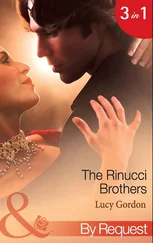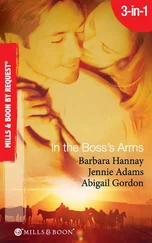Joseph Gordon - The Chronicles of a Gay Gordon
Здесь есть возможность читать онлайн «Joseph Gordon - The Chronicles of a Gay Gordon» — ознакомительный отрывок электронной книги совершенно бесплатно, а после прочтения отрывка купить полную версию. В некоторых случаях можно слушать аудио, скачать через торрент в формате fb2 и присутствует краткое содержание. Жанр: foreign_antique, foreign_prose, на английском языке. Описание произведения, (предисловие) а так же отзывы посетителей доступны на портале библиотеки ЛибКат.
- Название:The Chronicles of a Gay Gordon
- Автор:
- Жанр:
- Год:неизвестен
- ISBN:нет данных
- Рейтинг книги:3 / 5. Голосов: 1
-
Избранное:Добавить в избранное
- Отзывы:
-
Ваша оценка:
- 60
- 1
- 2
- 3
- 4
- 5
The Chronicles of a Gay Gordon: краткое содержание, описание и аннотация
Предлагаем к чтению аннотацию, описание, краткое содержание или предисловие (зависит от того, что написал сам автор книги «The Chronicles of a Gay Gordon»). Если вы не нашли необходимую информацию о книге — напишите в комментариях, мы постараемся отыскать её.
The Chronicles of a Gay Gordon — читать онлайн ознакомительный отрывок
Ниже представлен текст книги, разбитый по страницам. Система сохранения места последней прочитанной страницы, позволяет с удобством читать онлайн бесплатно книгу «The Chronicles of a Gay Gordon», без необходимости каждый раз заново искать на чём Вы остановились. Поставьте закладку, и сможете в любой момент перейти на страницу, на которой закончили чтение.
Интервал:
Закладка:
My early school days in Spain were quite uneventful. After attending a day-school at Jeréz, kept by Don José Rincon, I went into the Jesuit College at Puerto Real for a year. A new college was being built at Puerto Santa Maria, to which the school was transferred, and it has been added to since. It is now one of the best colleges in the south of Spain.
On the death of my cousin, the entailed properties – as I have said – became my father’s, and the family left Spain to take up its residence in Scotland.
CHAPTER II
MY SCHOOLING
The journey from Jeréz to Scotland must have been full of interest and excitement for my father. Our party numbered about thirty of all ages, down to a couple of babies, my sister’s children. My father found it more practicable to arrange for what was then called a family train to take us through Spain and France. We travelled during the day and got shunted at night. Sometimes we slept in the carriages; other times at hotels. In either case, as a rule, there were frequent and – for a time – hard-fought battles among us young ones of both sexes for choice of sleeping places.
At meal times there were often considerable scrambles. We all seemed to have the same tastes and we all wanted the same things. My parents (who, poor dears, had to put up with us, and the Spanish nurses and servants, who had never left their own homes before, and who, the farther we got, seemed to think that they were never going to return to them) at last came to the conclusion that any attempts at punishing us were without satisfactory results, and that appealing to our love for them (for it was no use appealing to our love for each other) and our honour paid better.
My elder sisters and brothers, who were in the party, knew English. I did not. Not a word except two, and those were “all right,” which, immediately on arrival at Dover and all the way to London, I called out to every person I met.
On reaching Charing Cross the party was to have a meal previous to starting up to Scotland. The station restaurant manager was somewhat surprised when my father informed him that he wanted a table for about thirty persons, which, however, he arranged for. The Spanish nurses and women-servants were dressed after the style of their own country. They, of course, wore no hats, their hair being beautifully done with flowers at the side (which had to be provided for them whether we wished it or not), and characteristic shawls graced their shoulders. So that the little party at the table was quite an object of interest, not only to those others who were dining at the time, but also to a great many ordinary passengers who practically were blocking the entrance to the restaurant in order to obtain a glimpse of the foreigners.
All went well until the chef, with the huge sirloin of beef upon the travelling table, appeared upon the scene. No sooner did he begin to carve and the red, juicy gravy of the much under-done beef appeared, than the nurses rose in a body, dropped the babies and bolted through the door on to the platform. They thought they were going to be asked to eat raw meat. Of course, they had never seen a joint in Spain. On their leaving, we, the younger members of the family, were told to run after them and catch them if we could. So off we went, and then began such a chase through the station as I doubt if Charing Cross had ever witnessed before or has since. The station police and porters, not understanding what was going on, naturally started chasing and catching us youngsters, much to the amusement and bewilderment of those looking on. Meanwhile my father stood at the entrance of the restaurant, sad but resigned, and it was after some considerable time and after the removal of the offending joint, that the family party was again gathered together in peace and quiet, and shortly afterwards proceeded on the last stage of its journey and arrived safely at the old family home, which stands amidst some of the most beautiful woods in Scotland. It is very old, but not so old as the family itself.
My father decided that it would be better for me to get a little knowledge of the English language before he sent me to school, so that I might be able to look after myself when there. I was handed over to the care of the head gamekeeper, Thomas Kennedy. Dear Tom died three years ago, at a very old age; rather surprising he lived so long, as he had for years to look after me. To him, from the start, I was “Master Joseph,” and “Master Joseph” I remained until I embraced the old chap the last time I saw him before he died. It was from Tom Kennedy that I first learnt English, mixed with the broad Aberdeen-Scots, which when combined with my Spanish accent was practically a language of my own.
I wonder if Britons have any idea how difficult it is, especially for one whose native tongue is of the Latin origin, to get a thorough knowledge and grasp of their language. To my mind, the English language is not founded on any particular rules or principles. No matter how words are spelt, they have got to be pronounced just as the early Britons decided. There is no particular rule; if you want to spell properly, you pretty well have to learn to spell each word on its own. This is proved by the fact that the spelling of their own language correctly is certainly not one of the proud achievements of their own race. In the good old days before the War it may be stated without exaggeration that one of the greatest stumbling blocks in the public examinations – especially those for entrance into Woolwich and Sandhurst – was the qualification test in spelling. There must be thousands of candidates still alive who well remember receiving the foolscap blue envelopes notifying them that there was no further necessity for their presence at the examination as they had failed to qualify in spelling. As regards the pronunciation of words as you find them written, it is quite an art to hit them off right. Still, perseverance, patience and a good memory finally come to the rescue, and the result is then quite gratifying.
It was from Tom Kennedy that I also learnt to shoot, fish, ride and drink, for Tom always had a little flask of whisky to warm us up when we were sitting in the snow and waiting for the rabbits to bolt, or – what often took a great deal longer time – waiting for the ferrets to come out. And – last but not least – he taught me to smoke. I well remember Tom’s short black pipe and his old black twist tobacco. I shall never forget the times I had and the physical and mental agonies I endured in trying to enjoy that pipe.
So six months passed away and I was sent, with my two elder brothers, to the Oratory School in Edgware Road, Edgbaston, Birmingham. The head of the school was the celebrated Doctor, and later on Cardinal, Newman. Even to this day my recollections of that ascetic holy man are most vivid. At that time his name was a household word in religious controversy. He stood far above his contemporaries, whether they were those who agreed with or differed from his views. He was respected by all, loved by those who followed him; never hated, but somewhat feared, by those who opposed him. I remember that one of the greatest privileges to which the boys at our school at that time looked forward, was being selected to go and listen to Doctor Newman playing the violin. Five or six of us were taken to his study in the evening. In mute silence, with rapt attention, we watched the thin-featured man, whose countenance to us seemed to belong even then to a world beyond this, and we listened to what to us seemed the sweetest sounding music.
But yet there are other recollections which were not so pleasant. The head prefect was a man of very different physical qualities. Dear Father St. John Ambrose erred on the side of physical attainments. He was by no means thin or ascetic. He possessed a powerful arm, which he wielded with very considerable freedom when applying the birch in the recesses of the boot-room. I must admit that my interviews with Father St. John in the boot-room were not infrequent. But, after all, the immediate effect soon passed away and the incident was forgotten. Still, to my surprise, when the school accounts were rendered at the end of the year, my father was puzzled over one item, namely, “Birches – £1 2s. 6d.” (at the rate of half a crown each)! He asked me what it meant, and I explained to him as best I could that dear Father St. John was really the responsible person in the matter, and I had no doubt my father would get a full explanation from him if he wrote. But it brought home to me the recollection of nine visits to the boot-room with that amiable and much-respected Father St. John. I have within the last few months met again, after my long absence in other countries, several of my school mates. They are all going strong and well, holding high positions in this world, and as devoted as ever to the old school at Edgbaston. One of them is now Viscount Fitzalan, Viceroy of Ireland.
Читать дальшеИнтервал:
Закладка:
Похожие книги на «The Chronicles of a Gay Gordon»
Представляем Вашему вниманию похожие книги на «The Chronicles of a Gay Gordon» списком для выбора. Мы отобрали схожую по названию и смыслу литературу в надежде предоставить читателям больше вариантов отыскать новые, интересные, ещё непрочитанные произведения.
Обсуждение, отзывы о книге «The Chronicles of a Gay Gordon» и просто собственные мнения читателей. Оставьте ваши комментарии, напишите, что Вы думаете о произведении, его смысле или главных героях. Укажите что конкретно понравилось, а что нет, и почему Вы так считаете.












